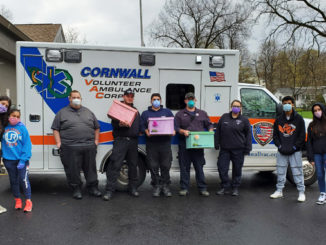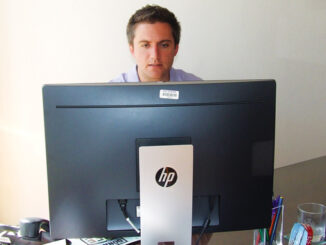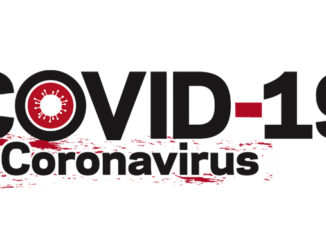Caring for virus patients is hard on their bodies and minds
The lives of medical personnel working on the frontlines to help treat patients infected with COVID-19 have been turned upside down. Their personal and professional lives haven’t been the same since the pandemic hit the United States. Two Cornwall nurses, Yoriko Tange-Campbell and Matthew Aggazi-Cowton graciously agreed to share their experiences over the past three months.
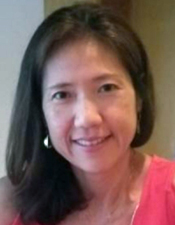
Tange-Campbell, a 16-year resident of Cornwall, has been a nurse for 21 years –10 in Japan and 11 in the United States. She currently works at Orange Regional Medical Center. Aggazi-Cowton moved to Cornwall six years ago. He’s been a licensed practical nurse for almost 10 years and a registered nurse for three at Montefiore St. Luke’s Cornwall Hospital. Both share similar concerns and experiences working with infected patients on a daily basis.
When patients started arriving at the hospital, panic and anxiety were the first emotions both nurses felt.
“We didn’t know a lot about it,” Aggazi-Cowton said of the virus. “There was a lot of uncertainty and the patients were showing up in a critical state. Their conditions were changing rapidly. It was definitely nerve wracking as we started to get ourselves prepared for the influx that might be arriving.”
Tange-Campbell said working with a new virus required a learning curve. She wondered how difficult and challenging it was going to be.
As droves of patients started to arrive at area emergency rooms, hospitals began to establish protocols to manage them and protect others from contracting the virus. Isolation units were established to separate COVID-19 patients, or those who potentially had the virus, from the general public, as well as staff. Visitors have not been permitted to visit their loved ones, but video chat has allowed for some semblance of contact.
“It’s very hard emotionally to see how the virus ravages the body. Some young and seemingly healthy people can succumb to covid and rapidly deteriorate in a short amount of time. It’s stressful and taxing for everyone involved.”
Yoriko Tange-Campbell
When it comes to the protection and safety of the hospital personnel, the nurses have had different experiences.
“In the beginning of the pandemic, supplies were somewhat limited, but we made do with what we had,” Tange-Campbell said. “As time went on PPEs became more wide-spread and available, but still not where it needs to be. As everyone knows, there has been a shortage of supplies.”
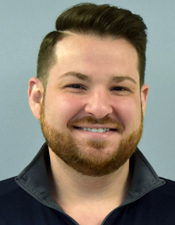
Aggazi-Cowton’s experience has been much different.
“To the best of my knowledge, we’ve always had every thing available to us,” he said. “I have not experienced or heard of any coworkers feeling they don’t feel prepared as far as having a gown or mask available. They’ve done a great job to make sure we’re safe and ready to do our job.”
Despite the institutions’ best efforts to protect its employees, over two months later, those initial fears still haven’t diminished.
“One concern is possibly contracting the virus myself and then not being able to help them,” Tange-Campbell said of her patients. “Also not being able to have close contact is hard. Being able to show and express compassion is important for both patients and caregivers to promote healing. Unfortunately the covid virus makes that more difficult because of all the precautions. A lack of negative pressure rooms means that we need to work under extreme conditions where we cannot remove N95 masks in between patient care because of the risk of exposure. The fear of bringing the virus home was always a concern.”
At home, Tange-Campbell said normal precautions were taken such as limiting some contact, wearing a mask, and disinfecting surfaces and work scrubs. She and her husband are sleeping separately.
Home life for Aggazi-Cowton has also been turned on its head. For fear of passing the virus on to his husband and their eight-month-old son, who they adopted in March right before the quarantine went into effect, Aggazi-Cowton has been living in a trailer in the driveway of their home.
“It’s been very difficult,” he said. “When you go to work everyday and you see these patients suffering, you see these patients passing, and they’re not able to see their families — I want to come home and hug my family tight and spend time with them and I can’t for their safety.”
Instead, time has been shared at a distance with a barrier in between. What makes it even harder is missing out on his son’s early milestones such as crawling and learning to walk.
Also trying has been having to deal with the high mortality rate.
“As hard as it is for me to be away from my family, they’re away from their family too. You really are their only human interaction. It’s emotionally draining. I’ve been trying to find some things to calm my mind and be able to hit the reset button before going back.”
Matthew Aggazi-Cowton
“It’s very hard emotionally to see how the virus ravages the body,” Tange-Campbell said. “Some young and seemingly healthy people can succumb to covid and rapidly deteriorate in a short amount of time. It’s stressful and taxing for everyone involved.”
As nurses, Aggazi-Cowton said he not only tries to provide emotional support to the patients, but their families as well.
“We’re at a place where we’re not only trying to be there for the patient but we’re trying to be there for the families who can’t be with them,” he said. “How do you help somebody grieve and mourn when they don’t have anything tangible? It can be very challenging.”
These are stressful times and those working on the front lines have had to find ways to maintain their sanity by finding activities which allow them to unwind at the end of a tough day.
Tange-Campbell used to teach Zumba and she works with weights and hikes around Cornwall two to three times a week. Aggazi-Cowton started to take up meditation.
“When you’re thinking about patients you’re leaving behind and whether they’re going to make it through the night or what you can do differently when you go back the next day, it’s hard to shut that off when you leave,” he said. “These patients, their status changes so quickly. As hard as it is for me to be away from my family, they’re away from their family too. You really are their only human interaction. It’s emotionally draining. I’ve been trying to find some things to calm my mind and be able to hit the reset button before going back.”
If there’s anything good to come out of these difficult times, it’s those people who have stepped up to lend a hand. Tange-Campbell said there’s been so much support from everyone in the community. She said the help is appreciated. Many have named the healthcare providers as heroes, but to Aggazi-Cowton, his hero is the man who has been raising their son on his own for the past two months.

